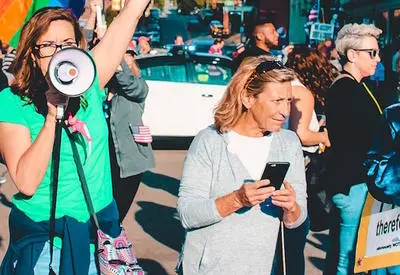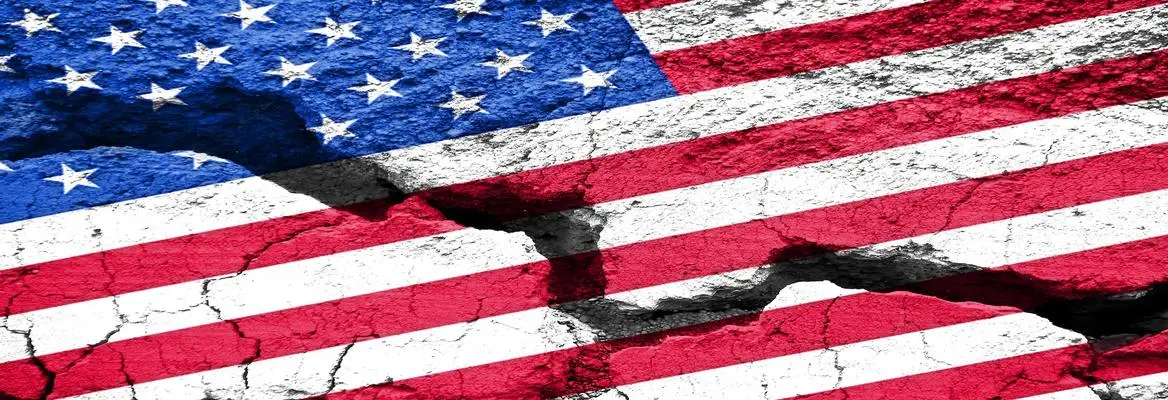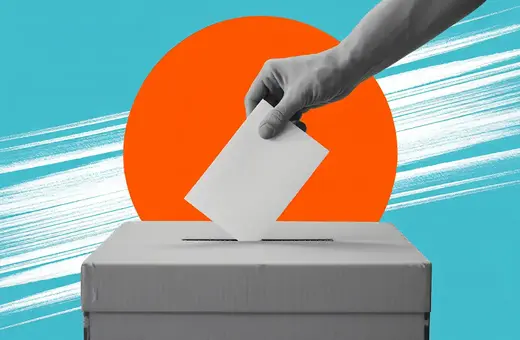The extreme polarization of European and American politics is now widely seen as a threat to democracy. But polarization is often misunderstood as simply political divisiveness that can be resolved if only the two sides came together to find common ground. That’s wrong. Polarization isn’t about partisan animosity or a lack of common ground. It’s about a cognitive distortion that happens when we retreat to our in-groups. Polarization ultimately poisons our relations with our own political side, making us intolerant of any disagreement. To battle polarization, then, we need to start with becoming used to disagreeing with our political allies, argued Robert Tallise.
2021 closed on a sour note for American democracy. Despite electing Joe Biden to the Presidency a year ago, large segments of the population still accept baseless allegations of widespread election fraud. According to one recent poll, more than 40% of Americans doubt that Biden was elected legitimately. Citing this and other “visible deteriorations” of democratic norms, the International IDEA Global State of Democracy Report now classifies the United States a “backsliding democracy.” But according to Kevin Casas-Zamora, International IDEA’s secretary general, the “most concerning” aspect of US politics is “runaway polarization.”
 SUGGESTED READING
Democracy Can Be Overdone
By Robert Talisse
The idea that polarization is the predominant ailment of American democracy looms large in political commentary. It is asserted across the partisan spectrum, taking center stage in President Biden’s Inaugural Address and in recent statements by former Presidents Bush and Carter. The diagnosis resonates with voters as well. Though pronounced in the US, polarization isn’t strictly America’s problem. The UK remains significantly divided over Brexit, and one in five French voters identifies as “extreme.” A pair of researchers has called polarization the new specter haunting Europe. Another team says it is a “global crisis.”
SUGGESTED READING
Democracy Can Be Overdone
By Robert Talisse
The idea that polarization is the predominant ailment of American democracy looms large in political commentary. It is asserted across the partisan spectrum, taking center stage in President Biden’s Inaugural Address and in recent statements by former Presidents Bush and Carter. The diagnosis resonates with voters as well. Though pronounced in the US, polarization isn’t strictly America’s problem. The UK remains significantly divided over Brexit, and one in five French voters identifies as “extreme.” A pair of researchers has called polarization the new specter haunting Europe. Another team says it is a “global crisis.”
So, what is polarization and why is it such a problem? How can it be fixed? Polarization is often presented simply as political divisiveness. This leads people to think that the problem can be solved by bringing the two sides together to hash out their differences in a civil manner. This may be a comforting thought, but it’s wrong. Polarization is a lot more complicated than that. It doesn’t only poison relations among political adversaries. It also can undermine our political alliances. This makes it difficult to correct. In the end, polarization cannot be fixed, only managed.
___
Polarization doesn’t only poison relations among political adversaries. It also can undermine our political alliances.
___
Popular discussions tend to assume that polarization is simple: it’s the condition where political groups are divided so deeply that they cannot cooperate. As democracy requires cooperation, polarization makes for political deadlock. Thus, polarization is marked by intensified cross-partisan animosity, making politics increasingly nasty and frustrating.
When polarization is understood in these terms, the solution seems obvious. To fix polarization, we must respectfully come together and build common ground. This simple story faces an important criticism. In focusing on parties abandoning the common ground, it suggests that polarization is always symmetrical, with both groups equally at fault. This means that both parties are equally responsible for repairing their rifts.





















Join the conversation